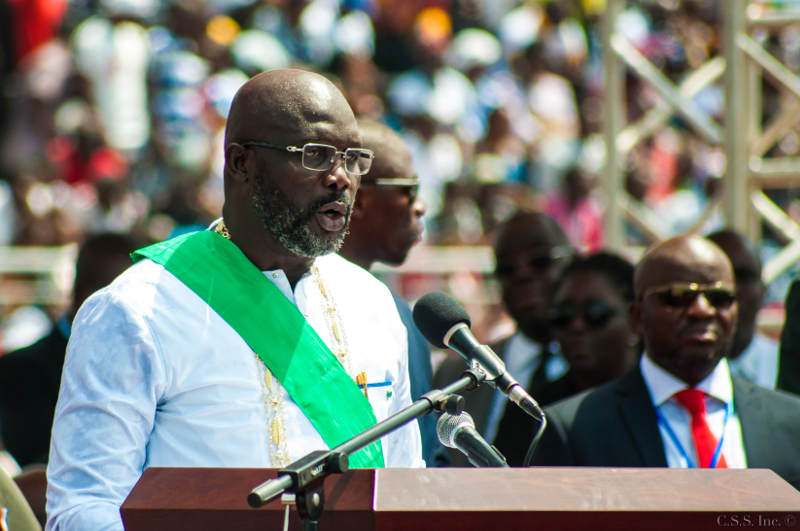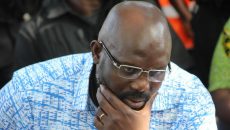MONROVIA, Montserrado – Fewer than 12 percent of President George Weah’s appointed cabinet ministers are women.
Although Weah has appointed women to serve in other positions, only 2 of the 17 individuals nominated to head ministries are women. They are Wilhelmina Jallah, the controversial health minister-designate, and Williametta Piso Saydee-Tarr, appointed to serve as gender minister.
The results indicate that, if the trend continues, women representative at the upper echelon of the Executive Branch will see a drastic reduction following Weah’s predecessor, Ellen Johnson Sirleaf, who became the first woman to be democratically elected as president for an African nation.
Of the 81 ministers appointed to serve in Sirleaf’s government, 22 percent were women, although the percentage varied at various times.
At an honoring ceremony held close to Inauguration Day, Weah promised to work with the women of Liberia and support efforts to increase their participation in government.
However, that program prompted Weah to issue a clarification on rumors that he had promised that his government would consist of 50 percent women.
A press statement from the Executive Mansion said while the president noted that the 30 percent figure generally advocated for women’s participation in government was too small and that 50 percent was a more reasonable figure, he was not promising that he would do so.
Weah’s statement, the press statement maintained, was an effort to showcase his longstanding support for women’s empowerment and adequate participation in the governance process.
The statement further noted that Weah was the only political leader under whose leadership, seven women were included in the National Legislature.
Meanwhile, a local gender activist, Ladymai Summon, has called on the president to live up to his commitment by appointing more women in senior positions of his administration.
Summon, who is the project coordinator for LIWOMAC, told The Bush Chicken in an interview that although nearly all senior cabinet members of the government have been appointed, it is not late for the president to deliver his promise.
“Right now, although the number of women in senior government positions is a bit lower than in the administration of President Sirleaf, it is still too early to give up,†she said.
She has also called on women to get more engaged with national politics and make themselves relevant members of strong political institutions.
According to Summon, the failure of most female politicians to join serious political parties and play important executive roles was a factor that impeded the election of more women during the October 10, 2017 elections.
She believes the success of most women in past elections, including Rep. Muna Youngblood and Sen. Geraldine Doe-Sheriff, was driven by their membership with the Congress for Democratic Change and the leadership role they played within those organizations.
Nevertheless, Summon believes more issues in the interest of women, including the passage of the Affirmative Action Bill currently before the legislature, can be achieved because the current vice president, Jewel Howard-Taylor, is a woman.
The gender disparity in government is not limited to the Executive Branch. Despite efforts by local and international feminist organizations to increase women participation in the legislature, there are currently 9 female representatives out of 73 while the number of female senators drops by one due to Jewel Howard-Taylor’s ascendancy to the vice presidency. Howard-Taylor is the first woman to be elected to the position.
Throughout the elections, UNMIL and the government of Sweden, through UN WOMEN, provided support to several local organizations to organize and implement programs aimed at encouraging more female participation in government.
The new elections law provides that political parties and coalitions submitting candidates for an election should “endeavor†to ensure that there is no less than 30 percent of candidates from each gender. However, no political party – including Sirleaf’s Unity Party – met the gender requirement. The National Elections Commission did not penalize any party for violation.
Although Sirleaf had promised to campaign for female lawmakers and said in her last address to the U.N. General Assembly that the next generation must belong to women, only 163 or 15.9 percent of the 1,026 individuals qualified to contest in the October 10 elections were women.
An affirmative action bill seeking to create five additional seats for women in the Legislature also failed to be passed by the 53rd legislature, despite a push by some interest groups.
Featured photo by Lloyd Massah



